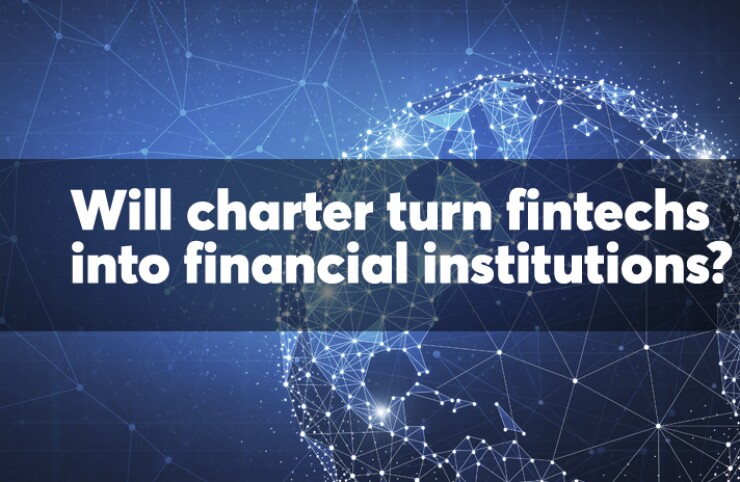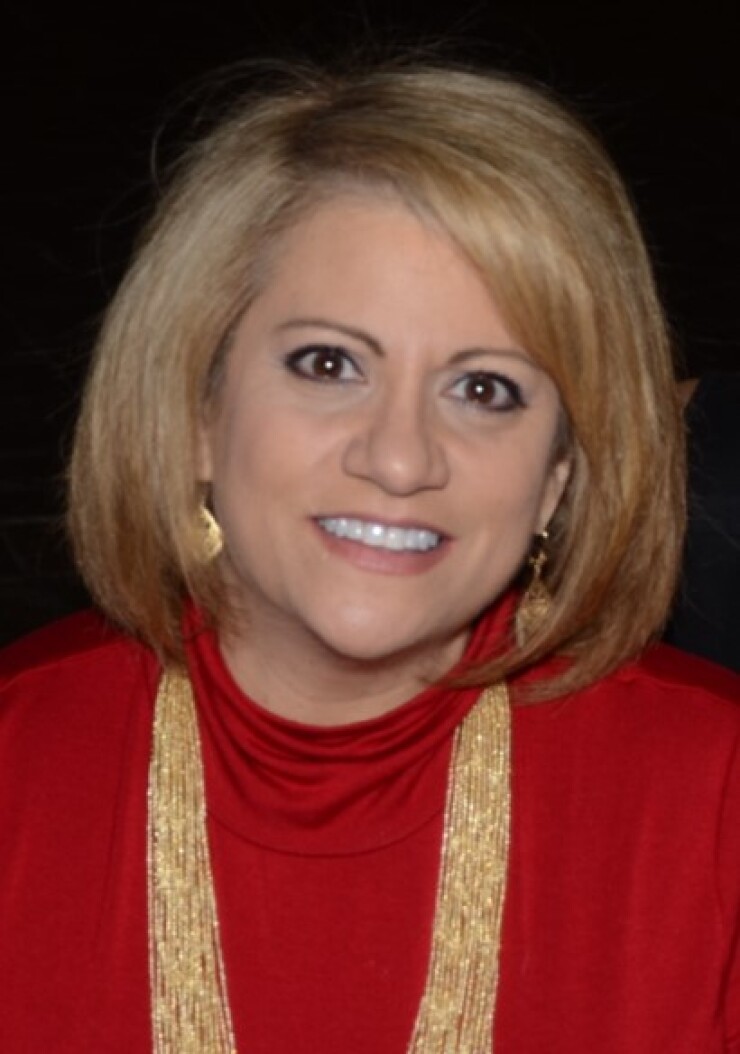Want unlimited access to top ideas and insights?
With the Office of the Comptroller of the Currency having

“The threat to any financial institution, including credit unions, would be around the prospect of a fintech with compelling, modern technology and innovative approaches to traditional banking services becoming regulated and competing with CUs and banks,” said Michael Carter, EVP of digital practice for the Memphis-based Strategic Resource Management (SRM).
Ted Bilke, president of Symitar and VP of Jack Henry & Associates, said one charter “negative” could be enabling large players like Walmart and Amazon to “provide traditional depository and lending services” that compete directly with traditional credit union business.
“Over time, this would be highly attractive to Amazon Prime users and a real threat to credit unions that are predominantly focused on retail customers,” said Bilke.

It’s not all deleterious in Bilke’s estimation. As an example, he pointed to
“In this scenario, the bank charter isn’t a traditional depository institution that competes directly with the credit unions’ business,” said Bilke. “Instead, it’s a new legal entity that enables credit unions to offer services not allowed under a traditional credit union charter. This may offer credit unions ways to expand their business.”
Defining fintechs
According to Fran Duggan, CEO of Payrailz, a payments company serving banks and credit unions, all fintechs will approach the charter (and be impacted by it) in different ways because the services those firms offer vary so greatly.
“There are two types of fintechs; we fit in the pile that provides services to credit unions,” said Duggan, who added that he is in favor of the charter. “Then there are tech companies trying to get into financial services also called fintech — those guys are going to find it harder.”
For fintechs that do provide services directly to credit unions, the charter could help the “cooperative modernize their processes to better serve members and provide new services,” noted Mike Morris, systems partner for the Atlanta-based accounting and advisory firm, Porter Keadle Moore.

“There will also be some fintech companies that obtain the charter and will directly compete with credit unions, and they may be able to deploy better services faster than credit unions can,” said Morris. “The issue here is that credit unions don’t want to wake up and realize they are Blockbuster and a new fintech is Netflix before it’s too late.”
While SRM’s Carter explained that his firm has proactively provided information and opinion about the OCC development to its clients, “little has been asked” about the charter.
“The OCC decision should in no way change a credit union’s top-of-mind concerns. The first and foremost concern should be the CU’s digital banking and transformation strategy, goals and plans for implementation,” said Carter. “If you are leading a credit union and are not thinking about digital first, you may not be leading a credit union very long.”

Deborah Matthews Phillips, managing director at Jack Henry & Associates, noted that it’s “important to remember that fintechs are not required to obtain this charter in order to start a company or play in this space.”
It is “highly possible,” Phillips added, that large technology companies like Amazon and retailers like Walmart will continue to provide financial services without the “burden” of regulatory oversight.
“I believe they view adding payments services as a way to further engage with and provide convenience to their massive base of customers, sell more product and strength their ecosystem,” said Phillips. “As an example, in 2005, Walmart wanted to obtain an [industrial loan company charter], but they ultimately retracted their application and have since added a variety of financial services, such as their Walmart2Walmart person-to-person service and Bluebird.”
Charter rules
Bilke explained that fintechs will face a regulatory learning curve, but the industry’s “model and focus” will center on “simple products” being delivered on a large scale. As such, the regulatory burden will be nothing short of a “speed bump” for fintechs that have the “means and commitment” to pursue a charter. To remain competitive, he recommends that credit unions partner with like-minded fintechs.
“Credit unions should partner with fintechs that take friction out of the service delivery, but don’t commoditize your brand. Partnering for point solutions and a frictionless consumer experience, but don’t partner for complete digital channel experience that disintermediates your brand,” said Bilke. “For example, no partnership with Amazon is going to provide a sustainable differentiator for credit unions.”

Duggan explained that Payrailz has a few credit union clients, with assets ranging from $150 million all the way up to $10 billion. He said there has been some chatter regarding the charter that centers on third-party providers, especially in the “payments world.” But he said that most clients feel this charter will eventually make the industry a “fairer” market place.
“We are still watching this [charter] and it is still opening up,” said Duggan. “Many of the companies, like us, do not do the full range of services; we have very directed services. So I don’t know if it would make sense [for us] to have the full charter.”
In Carter’s estimation, serious, more mature fintech leadership “absolutely understand the regulatory burden” that would be required if they were to entertain the OCC charter. As such, it is not likely that a fintech company will shoot from the proverbial hip.
“In my experience, typically the fintech leadership that suggests they were going to make FIs obsolete are young, have little to no finserv background and spend too much time drinking the Kool-Aid in Silicon Valley,” said Carter.





